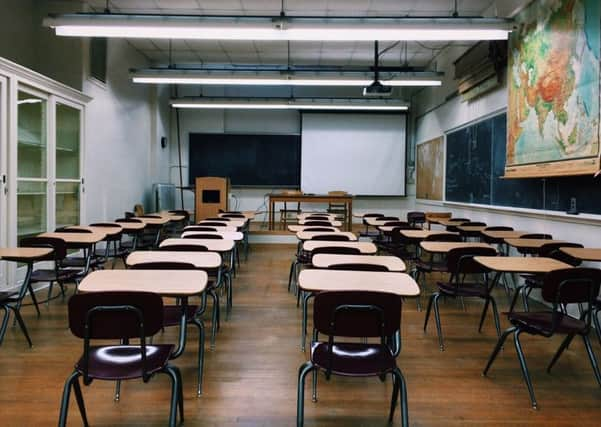Education bosses slammed for refusing to name and shame Sunderland schools which expel and exclude the most pupils


Figures presented to Sunderland City Council last night (Thursday, February 7) showed a massive spike in the rate of exclusions in 2017/18.
But despite showing figures for every secondary school in the city, including one which excluded more than 250 pupils in the last academic year, officials refused to identify them.
Advertisement
Hide AdAdvertisement
Hide Ad“Why haven’t you named the schools?,” demanded Coun Phil Tye at the city council’s Children, Education and Skills Scrutiny Committee.
“I think it’s a duty to come here and tell us who they are.”
He added: “We’re talking about a school [identified in figures only as School J] which is the one we talked about last time and named them last time.
“To drill into the data, am I right that its exclusion rate was 50 per cent?
“Where is the line when you’re bordering on to criminality?
Advertisement
Hide AdAdvertisement
Hide Ad“50 per cent of the days available was exclusions – 2,000 fixed term exclusions is unacceptable.”
Figures presented to the committee showed in 2017/18 School J excluded 254 pupils, of whom more than two thirds had special educational needs.
The provisional data showed 1,964 fixed-term exclusions, amounting to a total of 2,939 days excluded.
The report was presented by Simon Marshall, director of education for Together for Children, the organisation which took over the running of children’s services in Sunderland in 2017, following 2015’s damning Ofsted inspection of the city department.
Advertisement
Hide AdAdvertisement
Hide AdMr Marshall claimed the schools had been anonymised to protect his working relationships with individual schools.
Earlier in the meeting he also told councillors about difficulties in finding school places for pupils who were excluded, either permanently or temporarily.
He said this was due to limited space in link schools, which are designed to prepare children to return to mainstream education, and difficulty getting other schools to accept pupils known to be disruptive.
He told the panel: “I’m happy to discuss [the schools], but I have no authority to stop them doing this [excluding pupils] and my approach has got to be partnership working.
Advertisement
Hide AdAdvertisement
Hide Ad“By naming schools, which could then appear in a different arena, I don’t think that is the best way for me to develop that relationship.
“If I’m going to develop a different way of working I think that could be compromised.”
Coun Tye replied that exclusion figures for individual schools could be obtained by members of the public by other means.
“But it wouldn’t say Simon Marshall next to it,” Mr Marshall replied.
Advertisement
Hide AdAdvertisement
Hide AdCoun Patricia Smith, the committee’s chairwoman, appeared to agree with Mr Marshall, adding ‘we don’t want that set back by things naming them [the schools]’.
But Coun Tye insisted schools should be named.
He said: Tye: “We’ve talked about our secondary schools and why they are underperforming and then we look at the number of days lost through exclusions.
“I think it is the role of this committee to be exposing them.”
In a statement, following the meeting, Mr Marshall said: “We are not at liberty to identify schools in relation to this matter. 17/18 and 18/19 data relating to school exclusions, both fixed-term and permanent, is currently provisional in accordance with DfE guidelines.
Advertisement
Hide AdAdvertisement
Hide Ad“Guidelines allow for the appeal of an exclusion by pupils, parents or carers. We are also mindful of our legal obligations in relation to data privacy of individual children subject to exclusion.
“We are committed to working with Academy schools and the Office of the Regional School’s Commissioner, which is accountable for academy schools.”
James Harrison , Local Democracy Reporting Service